Bitland Mauritius White Paper

White Paper:
Mauritius Action Plan for Bitland Global
Authored by: L. Chris Bates - C.S.O. Bitland Global
Table of Contents
Contents
Project Outline
Mission
Company Profile
Action Plan and Major Goals
Community and Youth Outreach Programs
Mauritian Global Community Center
Pan-African Investment through Mauritius
Kenya
Nigeria
Botswana
Ghana
South Africa
Mauritius
Cadastral Registry Investment Portfolio
Training Team Protocol
Government Oversight and Cooperation
Course Design Principles
Developing Training Modules
References
Project Outline
Mission
The mission of the Bitland Project is to register land and real property ownership and use rights in a secure, easily-accessible electronic format to allow for timely access of ownership and rights information. The initiative is founded on educating people on the importance of strong property rights in the growth of prosperity within a nation, as well as on the importance of fundamental understanding of the underlying technology, economics, and infrastructure needs important to sustain a digital evolution within an economic organism.
Company Profile
Bitland Global is an organization that digitizes land titles. The larger goal is to have all the transactions recorded onto a distributed ledger using block-chain technology. The global company is a for-profit organization that is working to keep the land registration process accessible, transparent, and free from government corruption. Based on the theories of Hernando de Soto in “The Mystery of Capital”, the initiative focuses on unlocking the wealth that is stored in “dead capital” by registering land that is not legally registered. To prevent the spread of neo-colonialism, Bitland works through a series of non-profit and for profit partnerships to protect local ownership, while simultaneously promoting and protecting foreign investment.
In many countries, the trust has broken down between populations and their governments, and by proxy the foreign investment has ceased due to lack of faith in the business climates. Bitland is focused on not only helping build the infrastructure in these areas, but to re-establish the trust between the populations, governments, and foreign investors.
Bitland’s first non-profit is located in Kumasi, Ghana. The project has expanded into Nigeria, Kenya, Botswana, and is in the process of moving into Sierra Leone and South Africa. As the organization expands, the global initiative is taking care to respect the diverse cultures within each country by developing country/region specific project plans.
As Mauritius has been a historic hub for pan-African investment, it could potentially play a revolutionary role as the hub for Bitland Global’s training and development for all Africa. Coordinating the Mauritius hub as the headquarters for training and organization will establish a central hub for the African Bitland trainees to travel and have a central/neutral meeting ground. In line with the recent developments with the Bank of Mauritius and Board of Investment looking to make a deal with over forty banks across Africa, Bitland can leverage the Mauritian business climate to serve as the stable training point for all of the African Bitland branches.
In order to properly ensure communication between the working group within Bitland and the external liaisons, a very direct communication system must be developed (Security Program Best Practices, 2013). Having a working group communication hierarchy will ensure that the projects goals are reached, and the responsibilities within the organization are clearly defined and followed. While it is not clear exactly which organizations within the Mauritian government or private sector will be working with Bitland, establishing a working group will be one of the first necessary steps to ensure long term success of the project.
Action Plan and Major Goals
Bitland Global is looking to establish a G1 or G2 organization in Mauritius alongside the LTD that has already been registered. The operations will coordinate with each other, but the local LTD will be headed by Prakash Bheekhoo. Mr. Bheekhoo will lead the LTD operations, as is standard protocol for every Bitland local center to be run by a national. This will ensure that the local operations do not get conflated with the global organization’s initiative, but will also allow the local Bitland branch to work alongside the global organization with the least friction possible. As the global organization trains Mauritian citizens, the newly trained developers could be hired by the G1, the LTD, or placed in a position abroad with a Bitland center or job in the field.
As there are many necessary elements to getting the blockchain systems operational, establishing “intellectual property development teams” will be beneficial to not only the Bitland project, but the Mauritian government and people as well. Since the workers being trained will be able to start producing digital and physical intellectual property, the initiative to create the blockchain infrastructure for Mauritius inevitably results in intellectual property that can be licensed to other countries or private sector organizations.
Working with government and university representatives will enable the IP development teams to create government approved products that can then produce long-term income and by proxy tax payment for the Mauritian economy. Establishing IP that is produced in Mauritius will prevent other countries like the US from taking arbitrary taxes off every transaction if the IP was produced in the US. This will ensure that pan-African business done through Mauritian channels will not be taxed by external sources that have no involvement in the transactions.
In addition, developing the blockchain systems with government oversight will make it easier to follow standards such as AML/KYC, HIPAA, etc. This will ensure that any tool created by the teams can be used by other governments around the world as well as private sector organizations without worrying about laws preventing market entry. Being able to establish identity verification standards with a government will also be a natural criminal deterrent. Since these systems are meant to have government oversight at every step, the natural by-product is a system which promotes legal activities and makes it nearly impossible to execute malicious or nefarious actions within the protocol.
Since there are many active threats and risks within the digital and real-world elements of this process, having a multi-faceted approach to security is crucial. This includes access control, encrypted data relay, incident response plans, incident response teams, system back-ups, solar power generators, and a dedicated private network. Since the Mauritian infrastructure is one of the more advanced systems that Bitland is working with, the transition needs are not the same as the rural areas. Bitland will look to use the Mauritian Global Community Center as one of the more high tech Bitland headquarters. This will enable training seminars to go on year round for locals as well as the Bitland trainees from across Africa.
Having a dedicated center will enable seminars to go on for multiple weeks so that trainees had their lodging, food, and recreation available at all times. This creates an environment in which learning becomes second-nature, as training and education time become surrounded with supplementary relaxation and recreation time. This not only promotes positive health care within the work environment, but it creates a business culture that encourages community building. As the core of Bitland’s theoretical foundation is built around establishing trust within communities, the application of establishing this trust is manifested through community involvement and outreach.
Community and Youth Outreach Programs
The benefit of utilizing these centers for community outreach is that it will be necessary for the team to establish Bitland centers that house the hardware to support the Bitland network. Instead of using the data warehouses for solely storing data, the centers could be dual-purposed to serve as the hubs for training and community activities. As the center will have training programs for all levels of infrastructure needed to support the blockchain technology, it is necessary to have those training levels accommodate all ages that are able to participate.
Currently Bitland US branch is working on youth outreach through the popular virtual world platform “Minecraft”. Bitland has sponsored a team of youth to build a dedicated Minecraft server. The team will be led by Parker Kory, a 15 year old who has been named the “Ambassador to the Minecraft Community”. The Minecraft server build is just an example of how the Bitland project wants to get involved with training developers on all levels to understand project planning and execution. As well, the Bitland project wants to promote empowerment through ownership, and in the process empower youth to get involved in development at any age they feel ready.
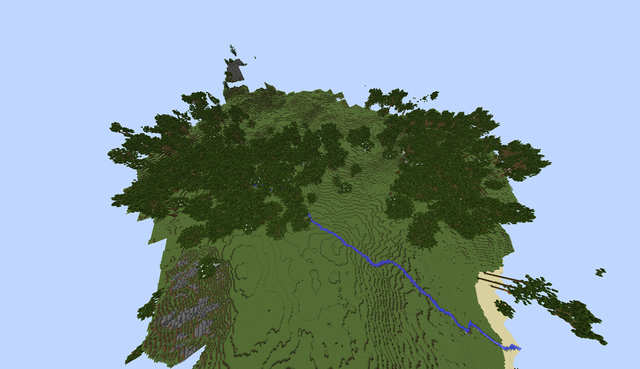
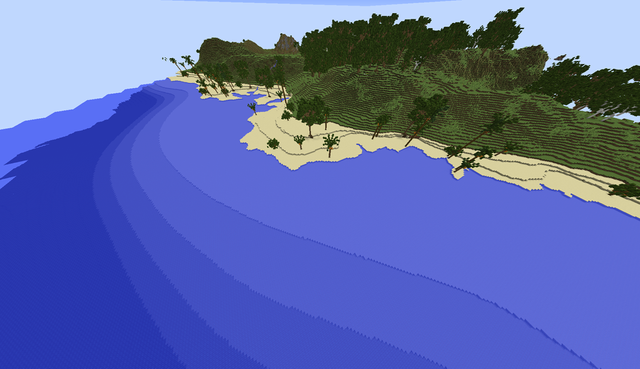
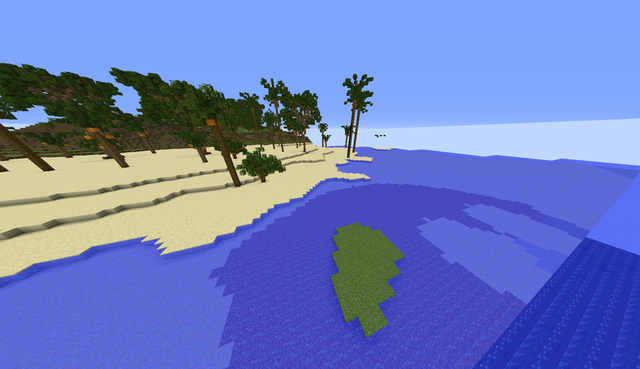

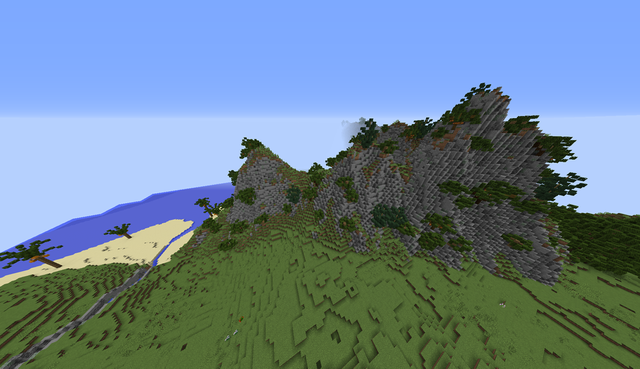

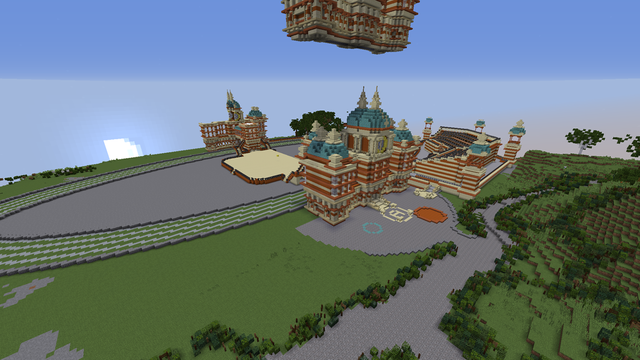
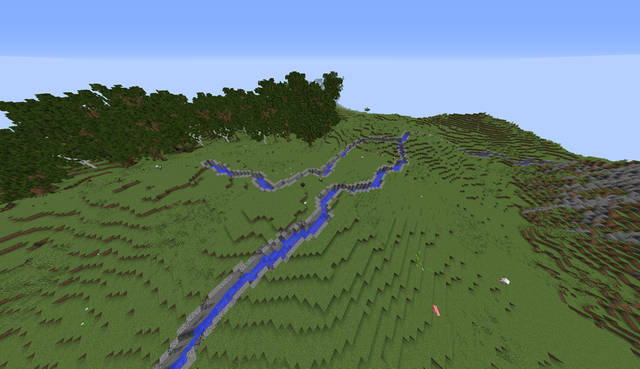
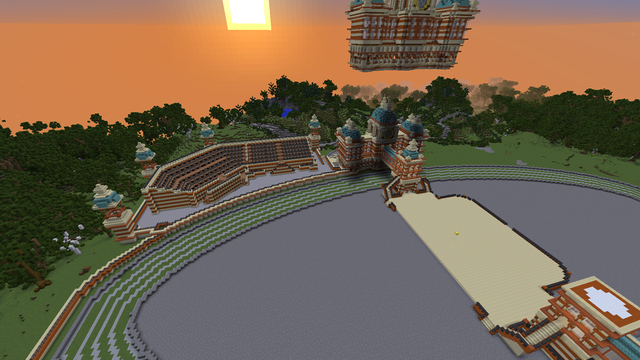
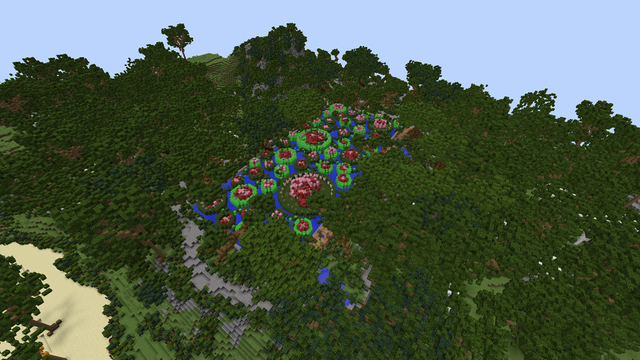
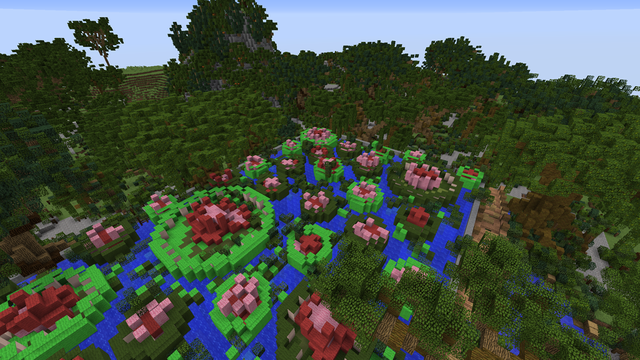
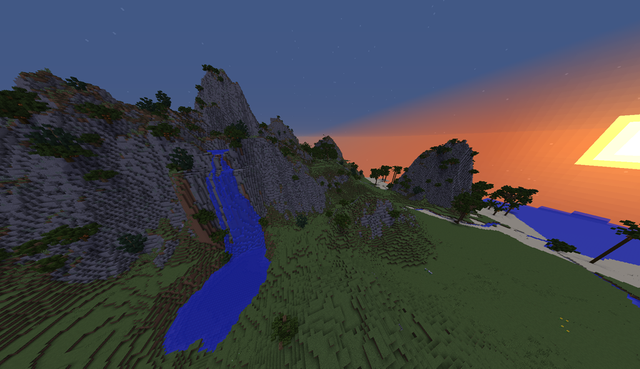
Mauritian Global Community Center
Bitland protocol is based on a philosophy of balancing micro- and macro-economic structures informed by an acute appreciation for the interconnected nature of various disparate fields of knowledge and practice. The Center will stand as an embodiment of this integrative and interdisciplinary philosophy and cultivate a multicultural community of Bitland associates housed together in an intellectually invigorating environment. The Center will host conferences, seminars, workshops, courses, dinners, and other public and corporate events. Naturally, the Center will also serve as the lodging, research, experimentation, and recreational facilities for invited lecturers, guests, fellows, and Bitland team members with a capacity to house 200 persons on any given day.
Facilities:
Conference Hall
Classrooms
Library and research center
Workshop and creative studios
Hostel
Kitchen and dining hall
Gardens
Sports complex
An Overview of Bitland’s Educational Initiative/Fellowship and Creative Training Programs
This is the plan for a practical model for the training and preparing of future Bitland (Global and Local) team members in innovative, functional, creative, and sustainable thought applied to real-world situations with the objective of enhancing societies and the human experience. The Mauritian Global Community Center will serve as the intellectual hub of Bitland’s Global operations, acting as a team training and educational facility as well as a think tank for future projects. The intellectually stimulating environment fostered within this center will educate and inspire generations of Bitland developers, visionaries, researchers, innovators, and associates.
Once fully developed and operational the training center will host regular seminars offered by visiting experts in the field, 6-8 week courses throughout the calendar year aimed at training current Bitland employees and new recruits (fellows) from around the globe.
Summer Training Courses
The first round of training will be provided in the Summer of 2017 after announcements for the program are circulated in Mauritian high schools and the university beginning in March. All of the trainees admitted to the program who successfully complete the coursework will be placed at positions within the Bitland Global or Mauritian operations. The most successful candidate from among them will be recruited to assist in teaching the next round of courses.
In subsequent years, as the program grows, the summer training sessions will open to prospective applicants first from the African continent and later from a global pool. The summer program will evolve into a competitive recruitment center whereby a select amount of candidates from various countries are brought in on a summer scholarship to complete a basic course and compete with their peers for a year-long fellowship at the Community Center.
Training and Seminars for the Academic Year
Short- and long-term courses will be available for new recruits, fellows, and existing team members to enroll in any time of the year. Bitland believes in fostering a sense of community within the corporate structure that will inform how team members of every level view and interact with their local communities outside of their jobs. Bitland aims to lead by example in showing how community, trust, and cooperation are at the core of both successful global organizations and society as a whole. This is why the Center, with its co-habitational and educational facilities are a significant part of Bitland’s greater vision for enabling peaceful and fair global existence among a wide variety of peoples. Moreover, the constant influx of Bitland employees from around the globe will have a positive effect on the Mauritian economy and facilitate a constant cultural exchange between the people of Mauritius and Bitland’s corporate culture.
Regardless of seniority or position, every contributor to the Bitland project will be required to participate in at least one of the Center’s events or courses per year (expenses paid by Bitland). Furthermore, with the submission of a simple application, Bitland employees interested in improving their skills or developing new ones are welcome to enroll in additional courses at the Center. A fundamental principle of valuing progress over stagnation is at the foundation of Bitland’s operating protocol and philosophy. As such, Bitland is committed to supporting its team members in their own endeavors to keep their knowledge and skills up-to-date, relevant, and cutting-edge.
The Bitland Fellowship Competition
The Fellowship Competition is an active investment in human-driven innovation and creativity that will contribute to Bitland’s larger goals of education and land/property management geared toward developing, enhancing, and growing local economies. The fellowship program aims to attract candidates from all demographics and backgrounds to create an extensive pool of talented visionaries and creative minds to become part of the Bitland team. Successful candidates will be housed at the Community Center for a year and allowed ample time to learn and develop new and innovative solutions to various local or global issues relatable to Bitland operations. Upon successful completion of the program, fellows will be placed at a station in the company where their talents will be of greatest use.
The competition will run annually. Every January the announcements for that year’s summer program will circulate. Open to each of the 54 African countries, the summer program will admit three promising candidates per country through an application process jointly overseen by both Bitland and a selection committee from each respective country. Each set of candidates (one from every country) will participate in one of the three recruitment programs, each lasting one month.
Meaning, in June the Center will host and evaluate 54 candidates, one from every country in Africa. In July the Center will host another round of 54 candidates and the same will happen in August. After each of the total 162 candidates complete their one-month program and present their work the most successful trainee from each country’s candidates will be selected from the year-long fellowship at the Center. Depending on their qualifications, the candidates who were not selected for the fellowship will be provided with opportunities for employment at their local Bitland branches.
While studying at the Center, Bitland Fellows will enjoy and benefit from a fully immersive educational experience that not only trains them for a fulfilling position at Bitland but that shapes their thinking and lifestyles in a way that prioritizes creativity, innovation, thoughtfulness, and empathy. Besides completing part-time training/coursework fellows will have the freedom to explore whatever field of inquiry (academic, artistic, physical, etc) accessible through the Center’s facilities either on an individual level or as part of an organized group. The Center’s library and research center will afford intellectual pursuits in all disciplines; its sports complex will supply fellows with opportunities to develop their physical skills or engage in team-building intramural and community outreach activities such as organizing and running a youth soccer team for Mauritians; its workshops and creative studios will allow fellows to experiment with models, graphic design, and other hands-on or technical pursuits; the gardens could become the basis for horticultural inquiry, practical applications, and recreational hobbies.
The Center’s focus on community, state-of-the-art facilities and emphasis on a humanistic approach to intellectual pursuits, practical training, and spirit-refining recreational activities will attract the best and brightest from across the globe, ensuring that Bitland and Mauritius in turn benefit from the skills and talents of the greatest human resources possible.
In addition to digital development outreach, Bitland Global has started sponsoring martial arts training for youth and adults. The program encourages community involvement in an environment that is focused on empowerment and self-improvement. The Bitland sponsored martial artists receive patches that go on their uniforms that show they have been sponsored by Bitland.
Beyond brand recognition, this is a way to show communities that Bitland is involved in community development beyond just land titles. These initiatives will establish the brand identity to be associated with education, self-improvement, and empowerment, as those core values are driving the initiative. While many see Bitland as a technology application, the real goal of the project is to establish trust in communities. The blockchain is a tool that can be used to establish trust, but that is not the only tool that will be used by the Bitland project.
The Bitland project wants to facilitate the development of community centers that sponsor youth involvement in the following areas-
• Soccer
• Tennis
• Gymnastics
• Martial Arts
• Track and field
• Fencing
• Archery
• Basketball
In addition to establishing youth participation sponsorships, the blockchain infrastructure will enable a reward system for participating in activities. In this protocol, youth and adults would be able to earn rewards such as tickets to recreational events, clothing rewards, or gift certificates to their selected outlet. As the Mauritian government already has an initiative promoting a more active population, the blockchain provides a secure way to track physical activity and give rewards to individuals. In regular databases, this kind of accrued information might represent a security risk, but this is where blockchain technology can enable secured data tracking and analysis by proxy to make use of large scale data while also promoting better health through increased activity.
Pan-African Investment through Mauritius
Kenya
In Kenya Paddy Mwangi is leading the efforts for the Bitland operation. As the Kenyan government recently disbanded the land ministry, the Bitland protocol is in place to potentially become a major part of the development of the new registry. This would be a case where having the Mauritian government oversight would be extremely beneficial, as they have already digitized over 60% of Mauritius’ land into a Cadaster that has unique PINs for each property. While the Bitland team has its own protocol, it would be a unique opportunity for Mauritian officials to provide assistance in accelerating the digitization of
Kenya, as Bitland has limitations in its capacity as a non-governmental entity.
As the Kenyan Bitland registry becomes filled with digitized titles, investment into Kenya can be channeled through the Bitland Mauritius network. Any foreign investment that goes through the Mauritius Bitland network will be able to have capital held with the Corporate Bank of Kenya as collateral to give out microloans to locals in Shillings. This will protect FDI, boost the Shilling through holding collateral in that currency, then by proxy accelerate development.
Since a current survey is roughly $110, Bitland can reduce the cost for locals to register their land, decrease the time of survey, and give a person access to capital through business loans. Since the Land Ministry has recently shut down, titles have not been able to be used as collateral. The digitization of the titles will not only upgrade the outdated registries, but it will remove the friction from a stalled real estate market.
Nigeria
The Nigerian project is being led by John Offikwu and Rex Edo. The Nigerian team has been working to establish a team to be trained to deploy the Bitland protocol. This will be in the form of registering properties digitally, gathering titles that have already been digitized, and surveying new properties. As the Nigerian technology landscape is far from homogeneous, some areas are digitally registered already, while others will need to be surveyed before they can be registered. In this case, the Nigerian team will be able to benefit from a Mauritian training center to travel to and learn all levels of the protocol in person.
The Nigerian team is also looking to become a hub for printing swag for the pan-African Bitland teams. Since it is not easily accessible to get t-shirts, stationary, or other printed materials sent from the US or Europe, establishing a hub within continental Africa will be imperative. This is a goal for the initial investment that goes towards the Nigerian Bitland team.
Botswana
Alakanani Itireleng is heading the operations in Botswana. With her background in blockchain education Alakanani can play a major role in teaching many people. As she heads the Satoshi Centre in Botswana, it will be possible to establish student/teacher exchange programs with the Mauritius Community Center. This type of long-term student/teacher exchange can be beneficial in building a culture of unique identities while embracing the connection as a global initiative. The hackathons and seminars could focus on creating joint IP to establish an inter-country development team.
Ghana
The Ghanaian Bitland team is led by Narigamba Mwinsuubo. He is the founder of the Bitland project, and has been working on the ground in Ghana to build the first Bitland center in Kumasi. As the Ghanaian project works to grow the facilities to serve a larger population, the Ghanaian initiative will look to invest in local cocoa farmers. As well as the cocoa farming, the initiative is looking to train more surveyors to be able to start surveying as quickly as possible.
South Africa
Dr. Ariel Lashansky will be leading Bitland operations in South Africa. As his non-profit organization “Healthiest Village” has been working to give the locals a financially viable route to getting a necessary dietary protein. Bitland is partnering with Healthiest Village to help build an innovation center, invest in farm equipment, and build a soccer academy for the community. As Healthiest Village had these plans for their initiative already, Bitland has partnered with them to accelerate the development of these projects. As the development projects will all be registered on the Cadastral Blockchain, these will serve as proof of concept for the land title registration to development protocol.
Mauritius
Prakash Bheekhoo is leading the Bitland LTD that is in Mauritius. He is working with graduates and professors from the local university to start developing a team to be the first Mauritian training team. As he is working with the Bitland Global team to develop a curriculum for blockchain developers, the team is keeping track of the books, courses, and articles they are using to learn about the various level of blockchain technology. With experienced trainees, Prakash will be looking to use the Bitland protocol for developing properties in Mauritius to the Smart City standard. As well, this development process will start putting Mauritians into highly-skilled jobs through the Bitland protocol within months.
Cadastral Registry Investment Portfolio
Bitland Global LLC has issued digital tokens called Cadastrals. The Bitland team is currently in the process of establishing a blockchain based ecosystem to track land titles for which Cadastrals will be the entry token. As the Bitland team develops the ecosystem, individuals who have obtained Cadastrals will be able to use them to invest in local economies and see real returns on their investment, as the team is establishing a system which will allow smart bonds and smart contracts to be created and utilized by governments, communities, organizations, and individuals. This will enable channels for foreign investment to flow into development projects, with government oversight for each branch of Bitland protecting the integrity of those investment channels. As Bitland plans to bridge the gap between government and developing populations, the organization intends to protect the interests of all parties to create the best business environment possible.
This system will open up new avenues for foreign investment into developing countries, while also establishing a transparent system in which these smart investments can take place without fear of corruption or nepotism. Bitland Global is also looking to reproduce this same protocol of land title registration followed by foreign direct investment in the form of microloans on top of the Cadastral network across all the Bitland branches. This will allow Bitland to establish an investment hub in Mauritius that will serve as the AML/KYC oversight point to ensure FDI is accredited investment with government involvement and approval in every step.
Coordinating FDI with the Board of Investment will enable FDI to be channeled to the proper Special Economic Zones, and the FDI will be properly taxed and distributed to the proper development goal. This will ensure efficiency and transparency throughout the investment process. As the Mauritius Africa Fund already has a focus on investing in different countries in Africa, working with the BOI will allow Bitland to quickly establish digital investment portfolios across the entire continent of Africa. This will accelerate growth across the continent, while maintaining transparent systems that promote fair trade.
Since there are many active threats and risks within the digital and real-world elements of this process, having a multi-faceted approach to security is crucial. This includes access control, encrypted data relay, incident response plans, incident response teams, system back-ups, solar power generators, and a dedicated private network. Since the company is working in areas where the infrastructure needs to be developed, it cannot rely on a local area network for data relay.
It will be necessary for the team to establish Bitland centers that house the hardware to support the Bitland network. As Mr. Prakash Bheekhoo has already established an LTD which will oversee the local development in Mauritius, the Global organization can work with the LTD to set up hardware centers to support the Mauritius infrastructure. This process can serve as the protocol that will be duplicated across the different Bitland branches. Since the Mauritian economy is working on Smart City initiatives, Bitland can use the Mauritian Smart City protocol as the basis for implementing community development in the rest of Africa. Whether it is creating walkable cities that establish homes close to location of work, or establishing better public transit through coordinated investment, the Mauritian Smart City model can be combined with the Bitland protocol to ensure the most efficient, effective, and respectful implementation of community development in the pan-African efforts.
It is the larger goal that governments will utilize the Bitland GUI to list contracts and create requests for bids that can then be listed for a contractor to claim. The Bitland System will utilize a double-blind bidding system so that the Government does not know who is bidding for the contract, and the bidder does not know the specific region of the contract or the owner of the contract. This will be to keep the process from being corrupted through nepotism, inflated bidding, or funds going to only a specific region.
As the team is looking to fund the installation of the first centers through Venture Capital, the goal is to start generating FDI into the Mauritian economy that pays Mauritian Nationals to develop IP that they own and in turn the Mauritian government receives taxes for the capital generated on that IP. As the global team trains and hires Mauritian nationals, the aim is to increase the proportion of salaries paid out to Mauritian nationals while keeping the salaries of the international workers the same. This in turn channels profits into training more developers and workers, in turn investing Bitland Global’s profits into the Mauritian people, rather than letting the profits sit in a savings account.
Using the example of the Mauritian government that has been so willing to invest in the education and empowerment of its people, Bitland Global sees the potential in putting its profits into community investment rather than letting capital sit and stagnate. As well, Bitland hopes to establish a long term presence in the Mauritian community, so the best way to do this is to pledge a percentage of G1 profits always go to training new workers or paying the salaries of Mauritian nationals.
The Cadastral tokens will be sold globally to fund the building of the Bitland Community Center as well as the first three years of operations. This way, the Bitland project starts with direct foreign investment into the Mauritian economy. Over three years, it is anticipated that the Community Center will bring at least 5 Million USD into the Mauritian economy. The Breakdown of the Cadastral Token Distribution and 3 year estimated budget are as follows:
Total Tokens:
-30 Million total tokens issued in 1 Block
Blockchain Explorer:
http://www.cryptofresh.com/a/CADASTRAL
Security Protocol:
-MIT Graphene
Allocation:
-20 Million to sell through ICO/Private sales
-1 Million To Establish Basket of Currency Reserve
-2 Million to Pay Bitland Employees/Independent Contractors
-3 Million Designated to Smart Contract Oracles distributed over next 99 years
- 4 Million For Reserve for Governments to buy tokens, then pay out contracts through Bitland Global GUI/Hardware
Estimated Cost
Year 1 1431000
Servers Mauritius 100000
Air conditioning units for servers 16000
Office rental 35000
LAN essentials 120000
VPN 120000
VoIP dedicated hosting servers/service 80000
VPN tunnel to government servers 160000
Security systems 100000
Office Supplies and furniture 60000
Enterprise level enabled hot spots 60000
Training Mauritian Nationals to Hire 100000
Salaries for Mauritian Nationals 300000
Salaries for International Team 300000
Year 2 1570000
Metropolitan/urban Area network (WLANX) 500000
Training Mauritian Nationals to Hire 200000
Office rental 70000
Salaries for Mauritian Nationals 500000
Salaries for International Team 300000
year 3 2740000
Big Data Servers 1200000
Training Mauritian Nationals to Hire 100000
Office rental 140000
Salaries for Mauritian Nationals 1000000
Salaries for International Team 300000
Totals 5741000
Examples of Office Rental Costs:
1 BPML Tower 1
(Ebene) 1936 Sq.ft = 2421 USD
2 Altima 1 Building
(Ebene) 1000 Sq.ft= 904.00 USD
3 ST Jean Tower
(Quatre-Bornes) 3000 Sq.ft.= 2,542.50 USD
4 Regus
(Ebene) An exterior executive office with views of the mountains for 10 person= 1,621.55 USD
5 Cubicle
(Phoenix) 979 Sq.ft= 1,331.99 USD
6 Catalyst
(Ebène) 1,238 Sq.ft= 2,079.20 USD
The team uses a combination of decentralized data storage and traditional server warehouses for back-ups. The first iteration of this project uses MIT Graphene encryption for any data that is being transmitted across the network or stored. The system also runs regular integrity checks to ensure there have been no changes to data. This is crucial for ensuring the land titles are not registered to more than one owner. It also prevents any person or official from modifying it without taking direct responsibility. This will prevent any fraudulent activities, and any official working against the interest of the government for personal gain will be exposed through digital footprints.
Mauritius Digital Infrastructure Certification Program
As the Bitland team is already working with University students from Mauritius, one of the goals of the Bitland Global Community Center is to work with the University and government to establish special certifications that can only be obtained through Mauritius channels. Whether it be online courses, certifications through accelerated seminars, or full on degrees in blockchain development, there is great potential to develop a working protocol that will establish standards for what constitutes a fully educated blockchain developer. Since the blockchain demands understanding of economics, legal policy, game theory, Internet protocol, security and more, it is imperative to determine a standard for someone who has a complete understanding of blockchain theory. This would not only contribute to the Mauritian economy, but also contribute to the Mauritian identity of promoting education and technological advances.
Since the Bitland Global team would be establishing a local presence, the Community Center would be able to coordinate with the local University and primary schools to have regular hackathons, seminars, and education sessions for the local community. The regular presence would ensure that the community has constant access to learning about blockchain technology, and thus would ensure that Mauritian citizens have the best chance at entering the blockchain development sector in any country.
As the population of Mauritius is only 1.3 million, there is a great potential to have a significant number of Mauritian citizens become blockchain developers to impact the global number. The number of global blockchain developers is relatively low at around 4,000. This presents the opportunity to have the Mauritian economy become one of the leading producers of blockchain tech, as the previous incarnations of the technology paid little focus on government compliance or government sector support.
As the Bitland Global team expands operations throughout Africa, the Mauritian Community Center has the potential to be the global training center. This would allow a central location for different Bitland representatives to come and learn, while being able to enjoy the tourism sector of Mauritius. As the Mauritian nationals will be going to other countries and training workers, the Bitland Community Center will naturally develop a worker exchange program in which workers are traveling to different countries, learning about different countries and cultures first hand, while teaching those new communities about the technology and how to implement it. In line with the Mauritian tradition of being a neutral meeting ground, the Mauritian Community Center can have periodic meetings of the global Bitland teams to increase the community involvement on a global scale while embracing the diversity of each country.
Training Team Protocol
In order to establish standardized certificates or degrees, it will be important to articulate what areas of learning are important to have a well-rounded blockchain developer. The following areas have been highlighted as being extremely important in having a fundamental understanding of the blockchain ecosystem.
• Economics – digital worlds, macro, micro, thermos
• Internet Protocol – IPV4, IPV6, MAC Addresses, TCP/IP, Security, access control
• Networking – Wireless networks, Local Area networks, metropolitan area networks
• Servers – Cloud servers, rack building, hosting, security, firewalls, incident response team
• Electrical engineering – Basic circuit connections, rudimentary robotics, servos, soldering
• NFC – Training in near field communication hardware/software, RFID
• Algorithms – SHA256, Scrypt, KECCAK, Grostl, QT distributed applications, etc.
CMMI-
When defining the hierarchy of policy and procedure decision-making and implementation, the Capability Maturity Model Integration is a useful method of analyzing an organization’s state. The CMMI allows a company to objectively rate the readiness of its individual departments to improve the process flow. The three different types of CMMI models include models for Development, for Services, and for Acquisition (Greiner, 2007). As well as having different types of CMMI models, there are different capability levels that define the readiness of each process area. These levels start at zero, and go to level three.
In order they are:
Incomplete: This is a process that is incomplete for any reason. At least one of the goals of the process area is not complete.
Performed: At this level, the process has been completed, and the goals of the process area of been met.
Managed: At this level, the care is taken to make sure that the processes are monitored and any policies that need to be adhered to are known and followed. This level is important to make sure that policies and procedures are implemented top-down with consistency and integrity.
Defined: In stage three, the policies and procedures are well-known and established. Standards of practices are consistent company-wide, and processes are defined in more detail.
There are five levels of process maturity that are identified by the CMMI (Greiner, 2007).
Initial: This is the first phase or starting point for any new process.
Repeatable: This is the level for a process that is used repeatedly.
Defined: This is when the process has become officially defined as a standard business process.
Managed: This is the level at which process measurement and management occur.
Optimizing: This is the level at which analysis of the prior levels is implemented into optimization of a process.
Within the CMMI paradigm, there are Key Process Areas that are used to further elaborate on the five levels that have already been defined (Greiner, 2007).
- Goals
- Commitment
- Ability
- Measurement
- Verification
For this project, the model that makes the most sense is the Development model. The Development model for CMMI encompasses all activities that constitute the actual delivery of a product or service. Within this model, the Process Area that should be the focus is Requirements Management (REQM). REQM is the method of obtaining all the requirements of the project to have an informed base of knowledge for planning, development, testing, and delivery. In the process of implementing the REQM, creating a transparent and centralized system to track system changes will simplify the monitoring process. As the system to track and document the REQM is developed, it will use a decentralized block-chain based approach to keeping track of the records. This will mitigate risk of file tampering and also lower the costs associated with data storage and data processing power.
It will be necessary to focus on the REQM process area, as this process area will be the foundation of the organization’s service delivery. Establishing a system that is built with a focus on transparency, data integrity, and monitoring lays the foundation for Bitland’s final product to make it easy for users to follow protocol. The generic practice that will be utilized is to establish organizational policies. Establishing organizational policies ensures that a standard method of approaching situations makes processes most efficient, and keeps all parties involved operating within all necessary parameters.
The specific practices necessary for Bitland to have long term success will include practices to ensure that users protect their respective data. A practice that will aide in this process is to utilize hardware based access controls for executing important operations. To prevent malicious agents from impersonating users through either man in the middle attacks, proxy spoofing, or other brute force methods, a hardware access control will allow multifactor authentication to be utilized.
The biggest goal of developing the REQM area is to establish the backbone of the Bitland system. This backbone includes a monitoring system that collects, stores, and publicly displays data. The first stage of the process will utilize the system to monitor progress of company-wide policy and procedure implementation. From there, the system will become the actual infrastructure for the Bitland organization’s business operations.
Government Oversight and Cooperation
In order to establish a culture that adheres to policies and procedures, it will be imperative to develop an extensive list of protocols for each area of operations. The policies and procedures should be considered a living document, and organizational training sessions will be held yearly to update all employees on any changes to policies.
General Policies – These Policies will be standard across the entire organization for all employees to follow (Koch, n.d.):
• Acceptable Encryption Policy
• Acceptable Use Policy
• Clean Desk Policy
• Disaster Recovery Plan Policy
• Digital Signature Acceptance Policy
• Email Policy
• Ethics Policy
• Pandemic Response Planning Policy
• Password Construction Guidelines
• Password Protection Policy
• Security Response Plan Policy
• End User Encryption Key Protection Policy
Network Policies – These policies will need to be followed by any network administrators or anyone accessing the network (Koch, n.d.):
• Acquisition Assessment Policy
• Bluetooth Baseline Requirements Policy
• Remote Access Policy
• Remote Access Tools Policy
• Router and Switch Security Policy
• Wireless Communication Policy
• Wireless Communication Standard
Server Security Policies – These policies will be in place to establish secure practices around server access (Koch, n.d.):
• Database Credentials Policy
• Technology Equipment Disposal Policy
• Information Logging Standard
• Lab Security Policy
• Server Security Policy
• Software Installation Policy
• Workstation Security (For HIPAA) Policy
Land Title Registration Policies – These policies are necessary to establish universal practices concerning registering land titles:
• Tenure Policy
• Ownership Policy
• Ownership Transfer Policy
• Government Registration Policy
• Local representative Policy
• Land Tax Policy
Course Design Principles
To establish the integrity of the Information Security Architecture, it will be imperative to have a set of core principles that drive the continuous hardening of security. While there will be many principles that shape the security strategies, the following five principles will be the most important to keep constantly at the core of development.
1 – Secure the Weakest Link:
In the process of establishing levels of security, the adage goes “a chain is only as strong as its weakest link”. To ensure that the culture of the organization revolves around security, it will be important that every level from Government official to individual user understands the importance of maintaining secure channels, policies, and procedures. It only takes one breach point to open up a system to malicious attack, so all parties accessing the network should have proper information and training that focuses on staying secure (McGraw, 2013).
2 – Defend in Depth:
It is never good to rely on one layer as the end-all layer of security. Whether it is having multiple firewalls, multi-factor authentication, or biometric keys, the system should have multiple layers of security anticipating at least one will fail, and in worst case scenario multiple layers could fail. That will tie into the next principle of “failing securely” (McGraw, 2013).
3 – Fail Securely:
No system will ever be 100% impervious to malicious attacks. It will be important to establish this so when system failures do happen, the contingency plans have mitigated most of the risks, and the resulting impact to data is minimal to non-existent. Having the redundancies in the layers helps reduce the risks of failure causing enough damage to impede operations (McGraw, 2013).
4 – Grant Least Privilege:
To reduce risk of breaches affecting sensitive information, user access should be limited whenever possible. This adds a layer of security by limiting the penetration capacity of the breach point. Government officials may need to have access to more files than regular users, but this does not mean the officials won’t have some restrictions on access. It will be extremely imperative to monitor access control, and ensure that the privileges are strictly given out on a necessary basis (McGraw, 2013).
5 – Separate Privileges:
This follows on the heels of the previous principle. It makes the process of granting privileges much easier to control if specific domains of control are separated. For example, everyone does not need to access the company’s website to make changes. Privileges for something like this should be given to only those needing to make changes. Users and the proper government officials should be the only parties able to make changes or documentation of land titles. Making sure that the government officials who need access to titles is closely monitored will be necessary as well to ensure access control does not become a point of breach (McGraw, 2013).
Developing Training Modules
To ensure that the security principles are established through policy and procedure, the Bitland team will establish workshops for all levels of the organization, the government, and for the local community. Having the workshops that cover all the areas of security and organizational hierarchy will be imperative to establish a culture of integrity across the entire project. Everyone involved should be educated and informed so that their decision-making processes are not creating unnecessary risks. The following team members will be assisting in developing the training sessions, modules, and necessary protocols.
Leadership Team
Narigamba Mwinsuubo Founder and CEO
L. Christopher Bates Chief Security Officer/President
Elliot Hedman Chief Operating Officer and Project Manager
Support Team
Ryan Berry Financial Advisor
Matthew Grady Research and Development
Dr. Yasemin Gencer Cultural Consultant
Brock Hager Web Administrator
Shikhar Das Business Development
Bryce Weiner Blockchain Consultant
Ambassadors
Philip Asare Ghana
Mustapha Cole Sierra Leone
Paddy Mwangi Kenya
Prakash Bheekhoo Mauritius
Alakanani Itireleng Botswana
Rex Edo Nigeria
John Offikwu Nigeria
Dr. Ariel Lashansky South America
References
Mauritian economy ranked 'most competitive' in sub Saharan African-
MAURITIUS - A new higher education hub-
http://www.universityworldnews.com/specialreports/index.php?action=view&report=52
African Leaders of Tomorrow
http://campusabroadmauritius.com/category/latest-news/
Mauritius’s long history of banking-
https://mostlyeconomics.wordpress.com/2016/10/04/mauritiuss-long-history-of-banking/
The Mystery of Capital-
http://www.imf.org/external/pubs/ft/fandd/2001/03/desoto.htm
A Theory of Fun-
http://www.theoryoffun.com/theoryoffun.pdf
A Theory of Fun: 10 Years Later-
http://www.raphkoster.com/gaming/gdco12/Koster_Raph_Theory_Fun_10.pdf
Mauritius to develop ‘sport for all’ strategy with Commonwealth support-
http://thecommonwealth.org/media/news/mauritius-develop-sport-all-strategy-commonwealth-support
BodyG.U.A.R.D. Awards and Recognitions-
http://www.medicalactiongames.com/bodyGUARD/recogs.shtml
International Jiu Jitsu Federation-
http://www.jjif.info/index.php?id=86
Mauritius Brazilian Jiu-Jitsu Federation-
http://www.mauritiussportscouncil.com/English/Federations/Pages/Mauritius-Brazilian-Jiu-Jitsu-Federation.aspx
SBM Bank Mauritius : sets its sights on the regional stage-
http://www.4-traders.com/SBM-BANK-MAURITIUS-LTD-18164761/news/SBM-Bank-Mauritius-sets-its-sights-on-the-regional-stage-23150813/
New Mauritian sale and leaseback and withdrawal of cautionary announcement-
http://www.eprop.co.za/commercial-property-news/item/20190-new-mauritian-sale-and-leaseback-and-withdrawal-of-cautionary-announcement.html
Positive growth forecast for East African hotel sector-
http://www.eprop.co.za/commercial-property-news/item/20189-positive-growth-forecast-for-east-african-hotel-sector.html
Mauritian economy ranked ‘best’ in sub Saharan African as Ghana fails 119 in the world-
http://www.africasell.com/2016/10/03/mauritian-economy-ranked-best-in-sub-saharan-african-as-ghana-fails-119-in-the-world/
Lakshman Bheenick: “I trust that political parties will appoint the best Prime Minister possible”-
http://www.businessmag.mu/article/lakshman-bheenick-i-trust-political-parties-will-appoint-best-prime-minister-possible-0
SBM sets its sights on the regional stage-
http://www.cpifinancial.net/features/post/37555/sbm-sets-its-sights-on-the-regional-stage
Mauritius: 3.1 trillion rupees injected into PME in less than 3 years-
http://en.indian-ocean-times.com/Mauritius-3-1-trillion-rupees-injected-into-PME-in-less-than-3-years_a3646.html
Adesina Urges African Countries To Seize New Investment Opportunities-
http://www.afdb.org/en/news-and-events/article/adesina-urges-african-countries-to-seize-new-investment-opportunities-16189/
$300 million to Improve Employment Opportunities for Jordanians and Syrian Refugees-
http://www.worldbank.org/en/news/press-release/2016/09/27/300-million-to-improve-employment-opportunities-for-jordanians-and-syrian-refugees
“Countries like Mauritius should be proud of their low tax economy”-
http://www.bizweek.mu/fr/info/countries-mauritius-should-be-proud-their-low-tax-economy
Africa Strategy: MoU to facilitate movement of business persons and professionals-
http://www.govmu.org/English/News/Pages/Africa-Strategy-MoU-to-facilitate-movement-of-business-persons-and-professionals.aspx
AFRICA SINGAPORE BUSINESS FORUM-
http://www.mauritiusifc.mu/en/events/africa-singapore-business-forum/
Swiss back new law to allow phone and email tapping-
https://www.thelocal.ch/20160925/swiss-set-to-back-new-surveillance-law
Leveraging engagement with emerging partners to boost Africa’s economic development-
http://www.ictsd.org/bridges-news/bridges-africa/news/leveraging-engagement-with-emerging-partners-to-boost-africa%E2%80%99s
Africa, and China’s One Belt, One Road initiative: Why now and what next?-
http://www.ictsd.org/bridges-news/bridges-africa/news/africa-and-china%E2%80%99s-one-belt-one-road-initiative-why-now-and-what
Do We Need Local Ownership Requirement for Foreign Direct Investment? Evidence from Chinese Firms-
http://www.etsg.org/ETSG2015/Papers/090.pdf
Exporting and Productivity: The Role of Ownership and Innovation in the Case of Vietnam-
https://www.brookings.edu/wp-content/uploads/2016/07/L2C_WP13_Newman-et-al-1.pdf
Lecture by John F. Nash Jr.: Ideal Money and Asymptotically Ideal Money-
http://sites.stat.psu.edu/~babu/nash/money.pdf
Kenya Shuts Down Bank Accounts of Bitcoin Startups, Minister Can’t Sell BitPesa Shares-
Why Africa’s Erstwhile Largest Economy Lags Behind With Bitcoin-
https://cointelegraph.com/news/why-africas-erstwhile-largest-economy-lags-behind-with-bitcoin
African governance: Mauritius on top, SA dips-
http://www.iol.co.za/news/africa/african-governance-mauritius-on-top-sa-dips-2075723
Increase of Mauritian foreign investment-
http://www.mauritiusguides.com/blog/increase-mauritian-foreign-investment
The Bank Group Participates in the Africa Partnership Conference 2016-
http://allafrica.com/stories/201610020302.html
New Urbanism: une ville à notre mesure-
http://www.lexpress.mu/article/290634/new-urbanism-une-ville-notre-mesure
Mauritius takes first step towards implementation of Agenda 2063-
http://ionnews.mu/video-mauritius-takes-step-implementation-agenda-2063-051016/
Private sector encouraged to increase investment for a modern economy-
http://www.govmu.org/English/News/Pages/Private-sector-encouraged-to-increase-investment-for-a-modern-economy--.aspx
Invest Mauritius Property Consultancy-
http://investmauritius.info/index.php/property-consultancy
BOI issues Smart City Certificate to Cap Tamarin Ltée-
http://www.investmauritius.com/news-room/latest-news/boi-issues-smart-city-certificate-to-cap-tamarin-lt%C3%A9e.aspx
BOI issues first Smart City Certificate-
http://www.investmauritius.com/news-room/latest-news/boi-issues-first-smart-city-certificate.aspx
PayPal Enabled More Than 40 Million Purchases From China In 2015-
http://www.pymnts.com/news/international/2016/paypal-enabled-more-than-40-million-purchases-from-china-in-2015/
Cost of Living in Mauritius-
https://www.numbeo.com/cost-of-living/country_result.jsp?country=Mauritius
Property Price Averages-
https://www.numbeo.com/property-investment/country_result.jsp?country=Mauritius&displayCurrency=USD
The Greatest Country on Earth: What the United States can learn from the tiny island nation of Mauritius.-
http://www.slate.com/articles/business/project_syndicate/2011/03/the_greatest_country_on_earth.html
Mauritius HRDC Training Grant System-
http://www.hrdc.mu/index.php/training-grant-system
The Current Status of Land Rights in the Transkeian Territories of South Africa-
https://www.fig.net/resources/proceedings/fig_proceedings/fig2016/papers/ts07h/TS07H_williams-wynn_8181.pdf
Tsweleni Recreation Centre Proposal-
www.canva.com/design/DAB2LHtBioA/ukJtfrmKEkn4N5LhZ14GrA/view?utm_content=DAB2LHtBioA&utm_campaign=designshare&utm_medium=link&utm_source=sharebutton.
South African Telecom Deployment in Rural Areas-
https://villagetelco.org/deployments/mankosi-south-africa/
Diploma In Security Management Outline. (n.d.). Retrieved from http://memberfiles.freewebs.com/68/25/62932568/documents/SECURITY MANAGT Outline.pdf
Koch, M. (n.d.). Information Security Policy Templates. Retrieved from https://www.sans.org/security-resources/policies/
Greiner, L. (2007, Oct 17). Capability Maturity Model Integration (CMMI) Definition and Solutions. Retrieved from CIO.com: http://www.cio.com/article/2437864/process-improvement/capability-maturity-model-integration--cmmi--definition-and-solutions.html
McGraw, G. (2013). Thirteen principles to ensure enterprise system security. Retrieved from http://searchsecurity.techtarget.com/opinion/Thirteen-principles-to-ensure-enterprise-system-security
Security Program Best-Practices. (2013, June 18). Retrieved from https://nigesecurityguy.wordpress.com/2013/06/18/security-program-best-practices-2-2/
Software quality assurance within the CMMi framework: CMMi – Requirements management (REQM). (n.d.). Retrieved from: http://www.software-quality-assurance.org/cmmi-requirements-management.html
Phenomenal work Chris! Thank you for getting this posted! Consider me an ally in this project and feel free to call on me if I can assist in any way. Looking forward to this idea spreading and going Fractal across the world!

great to know you brotha!
A lot of useful links. Thanks for update.
I'm feeling strange! Project have the same name, what I :/
you know what they say about great minds and such
Thanks for the info.
Good job.
Keep it up!!
I'd read it twice and I must say that this is really huge project. The only think I'm can't grasp is how it's with all funding issue with current price of Cadastral? Or whitepaper is not updated?
Cadastral price has nothing to do with funding project and nothing to do with project really. Market pays attention to nothing.
The Breakdown of the Cadastral Token Distribution and 3 year estimated budget are as follows:
Total Tokens:
-30 Million total tokens issued in 1 Block
Blockchain Explorer:
http://www.cryptofresh.com/a/CADASTRAL
Security Protocol:
-MIT Graphene
Allocation:
-20 Million to sell through ICO/Private sales
-1 Million To Establish Basket of Currency Reserve
-2 Million to Pay Bitland Employees/Independent Contractors
-3 Million Designated to Smart Contract Oracles distributed over next 99 years
4 Million For Reserve for Governments to buy tokens, then pay out contracts through Bitland Global GUI/Hardware
This is the part I don't get it. Sorry, It looks like I'm to stupid. Thanks for answer anyway.
I am not sure what you don't get? The "crypto" community did not really support the ICO and the sales were abysmal. There is no way the ICO could have supported the entire project long term, and the project has been getting private support that has nothing to do with the ICO. That was early last year. You're not stupid whatsoever. The ICO sales just were no where near enough to be considered capital support long term for the actual manifestation of the project. Thus why the "token price" on the market has absolutely nothing to do with the actual real world project .
The estimated "costs" of the original project were in the millions. We did barely 100k in token sales. The project has been moving on much more than the token sales and the private funding that has kept things going has nothing to do with the token. Does that clear it up?
I'm interested if the token will keep the same function in the future like it was predicted in the whitepaper or there will be abandoned, because of different types of investments in project. Should we consider Cadastral dead or it's worth to wait? Thanks.
we have built our alpha protocol around the project. it's just not an open alpha because we're not going to pose any unnecessary risks to the software development life cycle. i believe a lot of organizations have made terrible judgement calls having open alpha stage tests. this is going into the second year of the project. i am not sure how long people think things take, but government contracts take months and sometimes years to secure. also, i hate the idea of hodling. the token is not a security. it is not equity. no token traded on the free market has been classified as a security unless it is associated with overstock.com or reddit i believe. equating tokens to equity or stake in the company is illegal for any US based company. this is not something i am sure many people are aware of. the people who have the token need to trade the token to make the value change. we aren't going to pump the token like other organizations have. we have been buying and selling the tokens on the open market in the form of controlled buybacks and controlled sells. This is true for every "crypto token"= the market value technically has nothing to do with anything the company is doing.
Now, we are always going to be buying the token back off the market when the company takes in profits, however, if you look at the history of "businesses", 90%(ish) of businesses fail in the first year due to cash flow problems.
We're already past that. We are trying to grow the organization to global enterprise scale in year 2 through organized expansion. That has NOTHING to do with the token price. The market does not react to anything the organization is doing, to the point of people asking if the "token is dead".
Well, if the community just sits on the token and doesn't trade, then yes...they kill the token eventually. The market needs the "holders" to "trade" the tokens. They are simply buying tokens and sitting on them. That doesn't work.
Hello,
I have been following the project for several months.
The Cryptomoneda CADASTRAL for which it is used today? And so that it will be used in the future?
What relationship do you have with the project?
I am the Chief Security Officer/President of the project. The Cadastral is the backbone of our protocol.
Effectively we are a real estate investment trust that uses blockchain technology as our backbone.
Best,
Chris
All good.
Thanks for the reply.
Interesting work. Is the project still up and running?